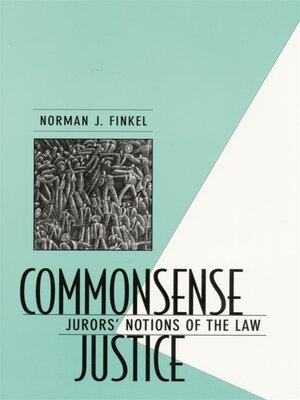
Sign up to save your library
With an OverDrive account, you can save your favorite libraries for at-a-glance information about availability. Find out more about OverDrive accounts.
Find this title in Libby, the library reading app by OverDrive.



Search for a digital library with this title
Title found at these libraries:
| Library Name | Distance |
|---|---|
| Loading... |
For the first time in our history, U.S. prisons house over a million inmates, enough to populate a city larger than San Francisco. Building prisons is the new growth industry, as the American public reacts to a perceived increase in violence and politicians take a hard line toward crime. But this eagerness to construct more prisons raises basic questions about what the community wants and will tolerate and what the Supreme Court will sanction.
In this timely book, Norman Finkel looks at the relationship between the "law on the books," as set down in the Constitution and developed in cases and decisions, and what he calls "commonsense justice," the ordinary citizen's notions of what is just and fair. Law is an essentially human endeavor, a collection of psychological theories about why people think, feel, and behave as they do, and when and why we should find some of them blameworthy and punishable. But is it independent of community sentiment, as some would contend? Or, as Finkel suggests, do juries bring the community's judgment to bear on the moral blameworthiness of the defendant? When jurors decide that the law is unfair, or the punishment inappropriate for a particular defendant, they have sometimes nullified the law.
Nullification represents the jury's desire not to defeat but "to perfect and complete" the law. It is the "no confidence" vote of commonsense justice refusing to follow the path the law has marked out—and pointing to a new path based on what seem to be more just grounds. Finkel brings to life the story behind the jury and judicial decisions, interweaving anecdotes, case law, and social science research to present a balanced and comprehensive view of important legal and social policy issues.







